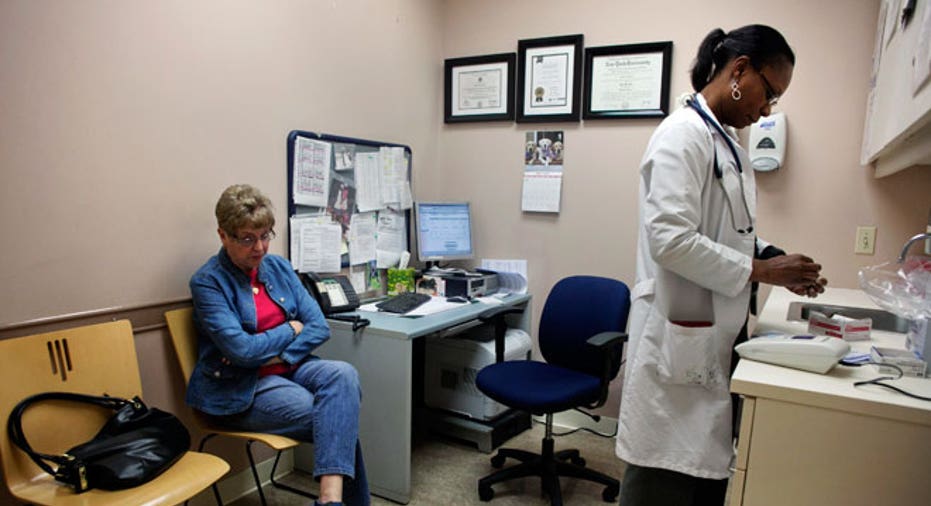How to Find Credible Medical Apps

You’ve heard the phrase: “there’s an app for that” and that notion certainly holds true for the health-care market. You can check your blood pressure, track your calories and receive medical advice via your smartphone and tablet—but just because they’re available, doesn’t make these apps safe, health-care experts warn.
“It’s the Wild West out there,” says Murray Aitken, executive director at the IMS Institute for Healthcare Informatics. “It’s hard to sort through them all and there’s little evidence about which ones really work.”
According to new report from IMS Institute for Healthcare Informatics, the majority of medical apps currently on the market have limited functionality and value when it comes to improving users’ health care.
The app marketplace is saturated with apps for diet and exercise, but options are more limited for those looking for information on chronic illnesses and apps for those targeting people over 65.
Of the more than 43,000 health-related apps available in Apple’s (NASDAQ:AAPL) app store, IMS found that only 16,275 are directly related to patient health and treatment. Of the health-care apps IMS Institute reviewed, 90% scored less than 40 out of 100 for functionality. What’s more, more than 50% of available health-care apps have been downloaded less than 500 times.
Doctors have been looking for ways to increase patient communication and use of technology, but the IMS Institute found that doctors don’t recommend apps that don’t come with evidence of clinical benefits, clear professional guidelines for use and data security.
“The lack of evidence makes physicians wary about recommending apps and therefor it’s preventing them from becoming more mainstream,” says Aitken.
He says in order for health-care apps to become more mainstream and impactful, there needs to be the development of some form of clinical evidence that prove an app’s worth.
In September, the Food and Drug Administration issued guidance on which apps it was going to regulate, and Aitken says the majority of health-care apps won’t face scrutiny leaving it up to developers to meet certain requirements.
“There’s benefit [for the app makers] to develop some evidence and for it to get peer reviewed,” says Aitken. “It adds credibility and visibility. Physicians pay attention to those things.”
When choosing apps, there is always an element of hit or miss, but Aitken recommends consumers choose apps that provide the information it promises in a safe and credible way.
For people with serious medical conditions look for applicable apps, Aitken suggests working with a physician to find the right app.
It’s also important to take into account an app’s ease of use and provided information. “Some of the most downloaded apps, particularly around fitness and counting calories, are very intuitive to use, give feedback to the user and incorporates a lot of useful information and guidance for the patient,” says Aitken.
While a lot of the medical apps offered today are for fun, he expects apps in the future to be more proactive and encourage wellness by doing things like reminding patients to take their medicine, prompt users of doctors’ instructions and help monitor patients after being discharged by a hospital.
“Apps that enable you to communicate securely with your doctor whether its email or an automatic transmission of data from an app is where the future lies,” he says.



















